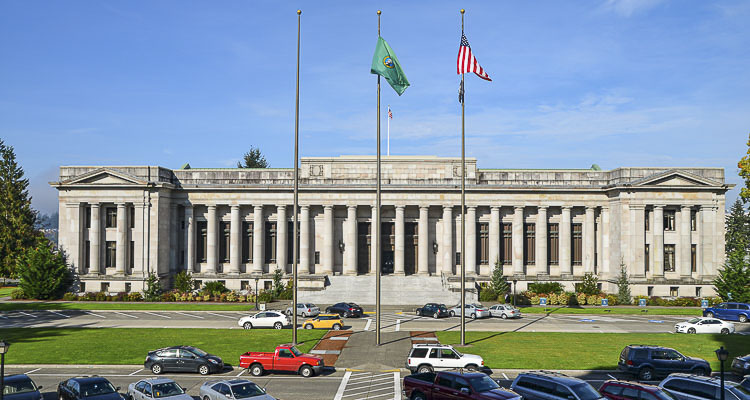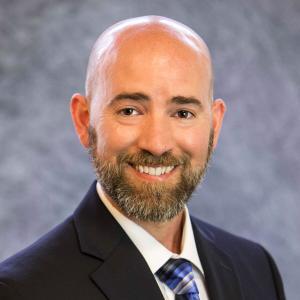
‘Claiming an income tax is instead an excise tax to set up litigation in hopes the state Supreme Court will now say that we don’t own our income is disingenuous at best’
Jason Mercier
Washington Policy Center
The state Supreme Court will hear oral arguments in the capital gains income tax lawsuit on January 26, 2023, at 9 a.m. The case will be heard in Tumwater due to renovations at the Temple of Justice. On March 1 of this year, an Inslee-appointed Superior Court judge ruled that the capital gains income tax “is declared unconstitutional and invalid and, therefore, is void and inoperable as a matter of law.”

The capital gains income tax being ruled unconstitutional by the Superior Court surprised no one. In fact, legislative public records after the March ruling included these comments from supporters of the tax:
- Rep. Frame: “Also, we fully expected the Douglas County judge would rule against us and always knew this would have to go up to the Supreme Court no matter what happened at the Superior Court.”
- Speaker Jinkins: “They forum shopped well. I would have been shocked with any different outcome.”
Staff at the Department of Revenue (DOR) also were not surprised by the ruling saying in public records:
“So…. We will keep going obvi, but scrap the whole thing when the supreme court weighs in? Also, this was no surprise.”
“Yes, no surprise. I believe we keep plugging away until we receive direction to cease.”
“We are still going to act like it will be rolling out in December, so please don’t let your attention or your commitment wane while working on Capital Gains. If it is decided later to be unconstitutional, then we will work to pull it out. But until then we are ‘A GO’ for December.”
Prior to the capital gains income tax being adopted by lawmakers, DOR warned (emphasis is DOR’s):
- “The federal capital gains tax is characterized as an income tax. One potential challenge to a capital gains tax proposal is that opponents may characterize the Washington capital gains tax as an income tax and argue that it is not allowed under the Washington constitution”;
- “The IRS considers taxes on investment income (dividends, a tax on net gains from the sale or exchange of a capital asset, or tax on the net taxable income of an unincorporated business) an income tax“;
- “Today states tax capital gains as income and a deduction may be taken on the taxpayer’s federal income tax return for state taxes paid on capital gains”;
- “significant costs to administer and enforce a capital gains tax upon tens of thousands of taxpayers that would need to be registered”;
- “Because Washington does not have an income tax, most individuals are not registered to pay taxes to the Department, requiring substantial work to register taxpayers”;
- “Some individuals may move their domicile out-of-state to avoid paying capital gains tax on investments in Washington State”;
- “susceptible to constitutional challenge as an income tax prohibited by the Washington state constitution”;
- “uncertain revenues due to potential legal challenges as well as revenue fluctuation due to volatility in the financial and real estate markets”; and
- “potential confusion stemming from Washington’s proposed ‘excise’ tax on capital gains when the IRS characterizes the federal capital gains tax as an income tax.”
With the state Supreme Court hearing date not until January 26, the next mystery surrounds DOR’s plans if a final ruling isn’t issued before the tax was originally set to be collected next April. I’ve repeatedly asked DOR if it will attempt to collect the capital gains income tax that was “declared unconstitutional and invalid and, therefore, is void and inoperable as a matter of law” absent a ruling from the state Supreme Court. DOR’s answer:
“That decision has not been made yet.”
This is why the Citizen Action Defense Fund sent DOR a cease and desist letter along with asking the Joint Administrative Rules Review Committee for a review of the statutory authority for DOR’s capital gains income tax rules.
As for the legal issues at play, Washington’s constitution has the broadest definition of property in the country. Based on this broad constitutional language, for nearly 100 years the state Supreme Court has ruled that Washingtonians own their income, meaning it is property. This is why our state Supreme Court has repeatedly ruled that in order to impose a graduated income tax, the constitution must be amended (something the voters have overwhelmingly rejected six times).
Previous attempts by the legislature to circumvent the fact the voters have rejected income tax constitutional amendments have been overturned by the court. In fact, the state Supreme Court in 1960 reminded income tax advocates that in order to impose a graduated income tax in Washington, the constitution must be amended. From the 1960 state Supreme Court ruling:
“The argument is again pressed upon us that these cases were wrongly decided. The court is unwilling, however, to recede from the position announced in its repeated decisions. Among other things, the attorney general urges that the result should now be different because the state is confronted with a financial crisis. If so, the constitution may be amended by vote of the people. Such a constitutional amendment was rejected by popular vote in 1934.”
Despite this clear and consistent message from the courts and voters, some income tax advocates now hope to use the capital gains income tax as a way to change the definition of property by judicial fiat and allow the imposition of a graduated income tax without a constitutional amendment. Consider the following 2018 email from Sen. Jamie Pedersen (page 1 of pdf):
“But the more important benefit of passing a capital gains tax is on the legal side, from my perspective. The other side will challenge it as an unconstitutional property tax. This will give the Supreme Court the opportunity to revisit its bad decisions from 1934 and 1951 that income is property and will make it possible, if we succeed, to enact a progressive income tax with a simple majority vote.”
Joining this strategy of ignoring the voters and hoping the courts will now allow a graduated income tax without a constitutional amendment is the Washington Education Association (WEA). The WEA on June 30 filed a legal brief with the state Supreme Court in the capital gains income tax case asking the justices to change their prior rulings and now declare that income isn’t property (meaning you don’t own it).
Whether or not a capital gains tax is an income tax isn’t up for debate. Every other state revenue department across the country clearly describes capital gains as income. Those that tax capital gains do so via their income tax codes. No other state attempts to tax capital gains as an “excise tax.” The IRS also unequivocally says that a capital gains tax IS an income tax.
IRS: “You ask whether tax on capital gains is considered an excise tax or an income tax? It is an income tax.”
Supporters of the capital gains income tax are fully aware of these facts but hope they can convince five justices to do what the people of Washington have repeatedly rejected. The proper way to impose a graduated income tax in Washington is with a constitutional amendment, as previously pointed out by the state Supreme Court.
Claiming an income tax is instead an “excise tax” to set up litigation in hopes the state Supreme Court will now say that we don’t own our income is disingenuous at best and highly contemptible of voters and the norms of governing.
It is past time for income tax advocates to stop ignoring the restrictions on a graduated income tax repeatedly affirmed by voters and for the state Supreme Court to reject yet again an attempt to circumvent the will of the people clearly expressed in the constitution and at the ballot box.
Jason Mercier is the director of the Center for Government Reform at the Washington Policy Center.
Also read:
- Opinion: OIC tells consumers not to pay for ‘insurance’ you won’t likely benefit from: Does that include WA Cares?Elizabeth New (Hovde) of the Washington Policy Center believes you should consider yourself warned by the Office of the Insurance Commissioner about WA Cares and its maybe-only benefit.
- Opinion: Same road, different speed limit?Target Zero Manager Doug Dahl addresses a question about speed limit signs going into and leaving town.
- Opinion: Hiding the growing cost of the Interstate Bridge replacementJoe Cortright of the City Observatory addresses the rising cost of the Interstate 5 Bridge replacement project.
- Letter: ‘This election I am NOT voting for Greg Cheney’Clark County resident Wynn Grcich shares her thoughts on Rep. Greg Cheney and the issue of fluoridation in area drinking water.
- POLL: Should biological males who identify as females be allowed to compete in athletic events against biological females?Should biological males who identify as females be allowed to compete in athletic events against biological females?










